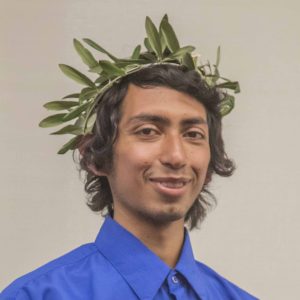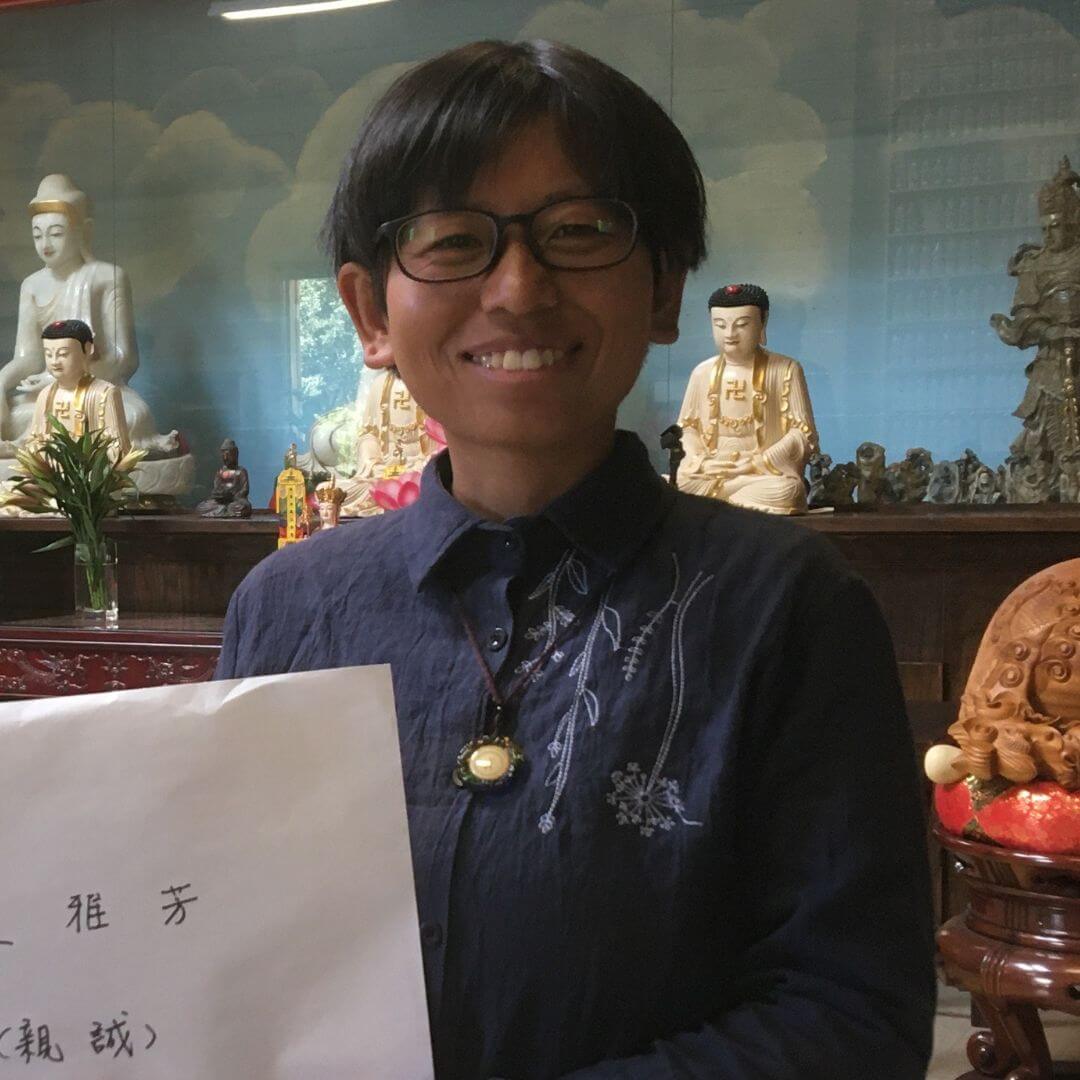
Hometown:
San Bernardino, California
What was I doing before DRBU?
I was unemployed for quite some time. After not finding employment, and when other backup plans didn’t follow through, I decided to go back to school. I applied to several colleges and universities and was very close to going somewhere else. During this time I was studying the Surangama Sutra, because it was highly recommended from a spiritual book that I read. The Surangama Sutra was said to be a very useful guide to all cultivators or mediation practitioners on the spiritual path, regardless of their religion. Reading it, I was struck by the difficulty in grasping its meaning. Later I found that the Buddhist Text Translation Society translation with Master Hsuan Hua’s commentary really helped to explain these supermundane principles.
Influential class I’ve taken:
Western Classics, Indian Classics, Chinese Classics, and Classical Chinese.
Influential book I’ve read:
The Holy Bible
Dao De Jing
Concept that blew my mind:
Phenomenology from Husserl
Challenge(s) I faced:
Returning my writing and reading skills to a more refined level after being out of school for a while.
How has DRBU changed me?
I’m a much more social person than I’ve ever been. I thought I was an introvert before. Now, sometimes I don’t know whether I’m an extrovert or an introvert. It was thanks to the shared inquiry model, getting to know my classmates and instructors, and the deep class discussions that made the experience filled with rich meaning. I’ve also become more comfortable with public speaking, which I never imagined I would ever do beforehand.
What surprised me about DRBU?
My first year was like opening up a present on Christmas day. The gift explodes with confetti everywhere! You would be very surprised by how much effort is put in from everyone – instructors, faculty, campus life, etc. You feel very supported to do your best, academic wise and as a whole person.
Title of a recent paper:
“A Spirit’s Tension Between Dissonance and Solace”
What is it about?
It’s an original short story that incorporates Indian ethical values. A flustered man enters the wilderness. He is frustrated by his past, the world, and the meaning of his life. He gets really lost to the point that he no longer sees signs of a forest and is surrounded by darkness. Despite the series of unfortunate events, he isn’t alone and he gets the opportunity to explore the depths of his spirit to find solace, which is inseparable from being connected with others.
What is it really about?
That devotional practices are worthwhile, which is supported by the Indian epic poetry of the Ramayana (Sita’s single-minded devotion to her husband Rama, which helped with her virtue and spiritual prowess), and what the requirements are for achieving peace that are based on the Indian literary work of the Bhagavad Gita.
What language are you taking?
Chinese Translation Seminar class
What’s your service scholarship (work study) job?
I clean different sections of DRBU and I work as a gate security person. In addition, I help in the DRBU Library.
Do you have a daily practice— if so, what is it?
I do sitting meditation, currently two one-hour sessions and I change the mediation topic after about a hundred days. I’m practicing the Zhunti mantra and Guanyin Bodhisattva mantra. I also practice walking recitation of the Shurangama mantra and Great Compassion mantra.
What do you do for fun?
Martial Arts practice, attend student activities events like board games or movie night, and Chinese Speaking Club.
How has financial aid played a role in your being here?
I’m thankful that I don’t have to worry about taking out a student loan to go to school, which was an obstacle, as I already had a student loan. I’m able to pay a portion of my school finances through service scholarship (work-study). It’s through these various jobs, which help to build practical life skills, that I can continue studying without worrying about financial worries. It is a relief for a full-time student.
How does what you’re learning here carry out into the world?
On a basic level, reading and writing skills are invaluable and transferable to almost anything in the world. DRBU’s BA program has nine different disciplines. As a result, a broad mind is developed that’s flexible in this ever growing and changing modern age. In particular, we engage in close reading of the texts we encounter—akin to having a dialogue with the author. So with the learning, we have gained and refined here, we engage the world with a critical and flexible mind that is capable of thinking outside the box.


